Bulls are a hot topic and there were lots of questions from concerned beef finishers around the future of bull beef systems at this week’s open day on Tullamore Farm.
The decision to operate an under-16-month bull system on the farm was arrived at after looking at other options, including steer systems and selling weanlings.
When modelled, the under-16-month bull system offered the highest profitability possible while operating within the constraints of the farm.
Space limited
Cattle housing on the farm is not in plentiful supply and during winter months, space is very limited in the yard to house both sheep and cattle.
In a 24-month steer system, a further shed for 50 steers would have to be constructed. The management team felt this was too high of an expense to justify given the profitability of the steer system.
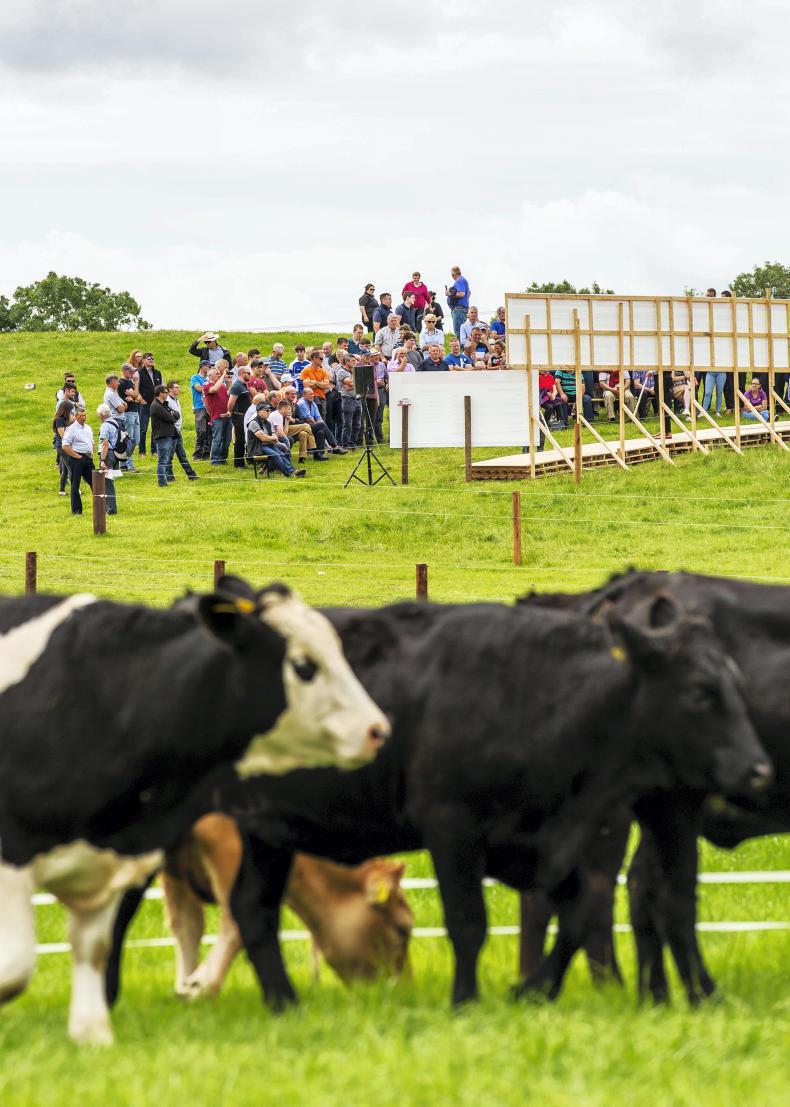
In calf heifers on display at the Tullamore farm beef and sheep open day on Wednesday
Moving to a steer system on Tullamore Farm would involve dropping cow numbers 20% to 30% and an investment of €60,000 in a cattle shed, both of which would severely affect profitability at current steer prices.
We also felt that the farm had all the ingredients to operate a highly profitable bull-beef system.
A good foundation cow, crossed with an AI sire, capable of achieving heavy weaning weights are all core to a successful bull-beef system.
We talked to our local processor and the bull system was pursued.
In 2019, some questions have arisen around the sustainability of bull-beef systems at current prices and whether factories are able to continue selling bulls as premium product.
Performance has been good. Concentrate usage over the bulls’ lifetime has ranged from 1.4t to 1.7t per animal and averaged at 1.55t/head.
The focus will be to reduce this further through earlier finishing and better performance. Table 1 outlines the finishing ration used, a high-cereal ration with buffers added to avoid digestive upsets.
Table 4 outlines the different feeding rates over the bulls' lifetime.
Table 2 outlines the 2017 under-16-month bull performance on Tullamore Farm while Table 3 looks at the target live weight gains in the Tullamore Farm bull-beef system.
Table 5 is the summary of the 2018-born bulls slaughtered in 2019.
Read more
Watch: Tullamore Farm open day - sucklers need direct supports to survive
Tullamore Farm: full financial performance for 2018 sees substantial loss
Bulls are a hot topic and there were lots of questions from concerned beef finishers around the future of bull beef systems at this week’s open day on Tullamore Farm.
The decision to operate an under-16-month bull system on the farm was arrived at after looking at other options, including steer systems and selling weanlings.
When modelled, the under-16-month bull system offered the highest profitability possible while operating within the constraints of the farm.
Space limited
Cattle housing on the farm is not in plentiful supply and during winter months, space is very limited in the yard to house both sheep and cattle.
In a 24-month steer system, a further shed for 50 steers would have to be constructed. The management team felt this was too high of an expense to justify given the profitability of the steer system.

In calf heifers on display at the Tullamore farm beef and sheep open day on Wednesday
Moving to a steer system on Tullamore Farm would involve dropping cow numbers 20% to 30% and an investment of €60,000 in a cattle shed, both of which would severely affect profitability at current steer prices.
We also felt that the farm had all the ingredients to operate a highly profitable bull-beef system.
A good foundation cow, crossed with an AI sire, capable of achieving heavy weaning weights are all core to a successful bull-beef system.
We talked to our local processor and the bull system was pursued.
In 2019, some questions have arisen around the sustainability of bull-beef systems at current prices and whether factories are able to continue selling bulls as premium product.
Performance has been good. Concentrate usage over the bulls’ lifetime has ranged from 1.4t to 1.7t per animal and averaged at 1.55t/head.
The focus will be to reduce this further through earlier finishing and better performance. Table 1 outlines the finishing ration used, a high-cereal ration with buffers added to avoid digestive upsets.
Table 4 outlines the different feeding rates over the bulls' lifetime.
Table 2 outlines the 2017 under-16-month bull performance on Tullamore Farm while Table 3 looks at the target live weight gains in the Tullamore Farm bull-beef system.
Table 5 is the summary of the 2018-born bulls slaughtered in 2019.
Read more
Watch: Tullamore Farm open day - sucklers need direct supports to survive
Tullamore Farm: full financial performance for 2018 sees substantial loss





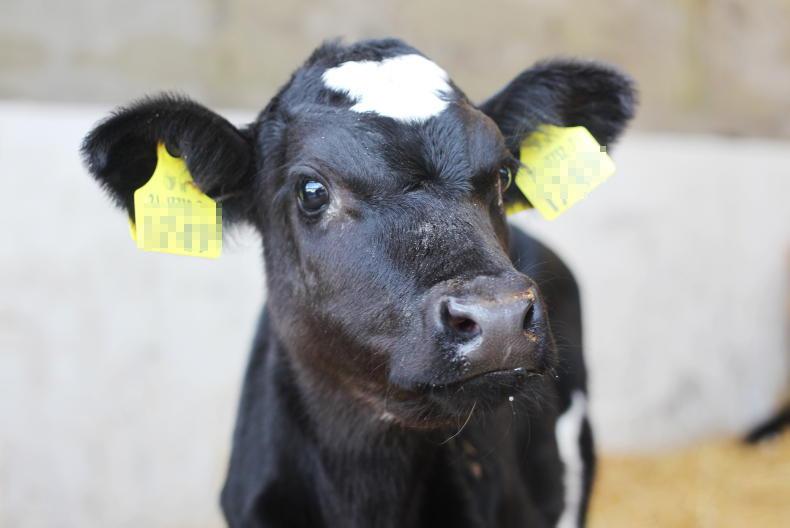
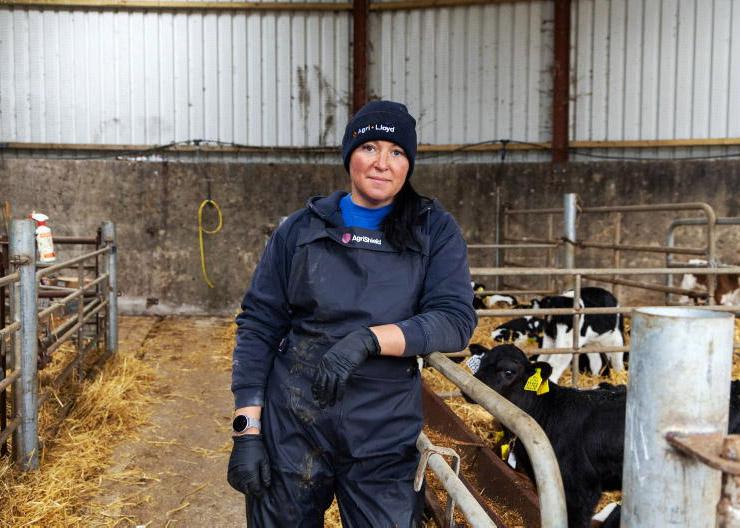
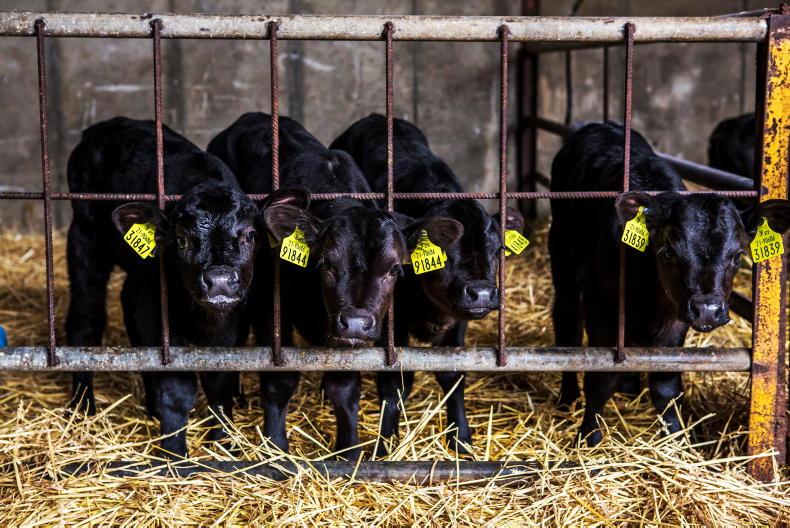
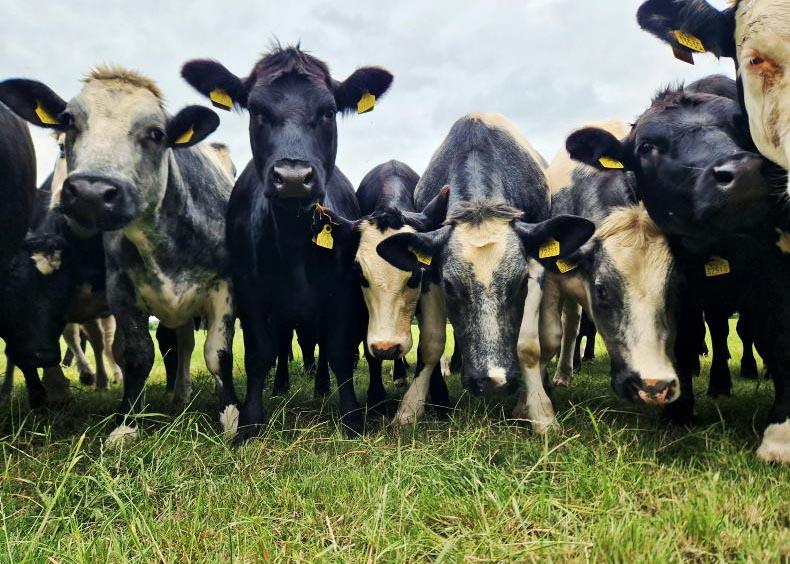
SHARING OPTIONS